
Hydroelectricity, or hydroelectric power, is electricity generated from hydropower. Hydropower supplies one sixth of the world's electricity, almost 4500 TWh in 2020, which is more than all other renewable sources combined and also more than nuclear power. Hydropower can provide large amounts of low-carbon electricity on demand, making it a key element for creating secure and clean electricity supply systems. A hydroelectric power station that has a dam and reservoir is a flexible source, since the amount of electricity produced can be increased or decreased in seconds or minutes in response to varying electricity demand. Once a hydroelectric complex is constructed, it produces no direct waste, and almost always emits considerably less greenhouse gas than fossil fuel-powered energy plants. However, when constructed in lowland rainforest areas, where part of the forest is inundated, substantial amounts of greenhouse gases may be emitted.

Energy development is the field of activities focused on obtaining sources of energy from natural resources. These activities include production of renewable, nuclear, and fossil fuel derived sources of energy, and for the recovery and reuse of energy that would otherwise be wasted. Energy conservation and efficiency measures reduce the demand for energy development, and can have benefits to society with improvements to environmental issues.

Scottish Power is a vertically integrated energy company based in Glasgow, Scotland. It is a subsidiary of Spanish utility firm Iberdrola.
The United Kingdom's Climate Change Programme was launched in November 2000 by the British government in response to its commitment agreed at the 1992 United Nations Conference on Environment and Development (UNCED). The 2000 programme was updated in March 2006 following a review launched in September 2004.
The Renewables Obligation (RO) is designed to encourage generation of electricity from eligible renewable sources in the United Kingdom. It was introduced in England and Wales and in a different form in Scotland in April 2002 and in Northern Ireland in April 2005, replacing the Non-Fossil Fuel Obligation which operated from 1990.
Renewable Energy Certificates (RECs), also known as Green tags, Renewable Energy Credits, Renewable Electricity Certificates, or Tradable Renewable Certificates (TRCs), are tradable, non-tangible energy certificates in the United States that represent proof that 1 megawatt-hour (MWh) of electricity was generated from an eligible renewable energy resource and was fed into the shared system of power lines which transport energy. Solar renewable energy certificates (SRECs) are RECs that are specifically generated by solar energy.
A green certificate are a tradable commodity proving that certain electricity is generated using renewable energy sources. Typically one certificate represents the generation of one Megawatthour of electricity. What is defined as "renewable" varies from certificate trading scheme to trading scheme. Usually, at least the following sources are considered as renewable:
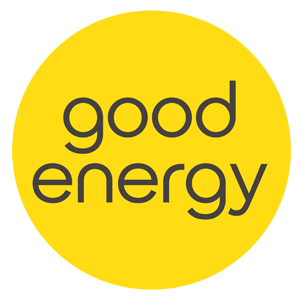
Good Energy Group PLC is a British energy company based in Chippenham, Wiltshire that provides services in the electrification of transport and decentralised renewable energy generation such as domestic solar panels. The company is also an energy retailer, and built a portfolio of wind and solar generation which was sold in 2022. Founded by Juliet Davenport, its CEO is Nigel Pocklington.
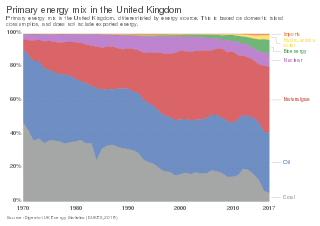
The energy policy of the United Kingdom refers to the United Kingdom's efforts towards reducing energy intensity, reducing energy poverty, and maintaining energy supply reliability. The United Kingdom has had success in this, though energy intensity remains high. There is an ambitious goal to reduce carbon dioxide emissions in future years, but it is unclear whether the programmes in place are sufficient to achieve this objective. Regarding energy self-sufficiency, UK policy does not address this issue, other than to concede historic energy security is currently ceasing to exist.
Energy Saving Trust (EST) is a British organization devoted to promoting energy efficiency, energy conservation, and the sustainable use of energy, thereby reducing carbon dioxide emissions and helping to prevent man-made climate change. It was founded in the United Kingdom as a government-sponsored initiative in 1992, following the global Earth Summit.

Renewable energy commercialization involves the deployment of three generations of renewable energy technologies dating back more than 100 years. First-generation technologies, which are already mature and economically competitive, include biomass, hydroelectricity, geothermal power and heat. Second-generation technologies are market-ready and are being deployed at the present time; they include solar heating, photovoltaics, wind power, solar thermal power stations, and modern forms of bioenergy. Third-generation technologies require continued R&D efforts in order to make large contributions on a global scale and include advanced biomass gasification, hot-dry-rock geothermal power, and ocean energy. As of 2012, renewable energy accounts for about half of new nameplate electrical capacity installed and costs are continuing to fall.
Future Energy is a former accreditation scheme for green electricity in the United Kingdom, designed to support and stimulate electricity generation from renewable energy sources. The scheme was launched in 1999 and was operated by the Energy Saving Trust until funding expired in 2002.

The availability and uptake of green electricity in the United Kingdom has increased in the 21st century. There are a number of suppliers offering green electricity in the United Kingdom. In theory these types of tariffs help to lower carbon dioxide emissions by increasing consumer demand for green electricity and encouraging more renewable energy plant to be built. Since Ofgem's 2014 regulations there are now set criteria defining what can be classified as a green source product. As well as holding sufficient guarantee of origin certificates to cover the electricity sold to consumers, suppliers are also required to show additionality by contributing to wider environmental and low carbon funds.
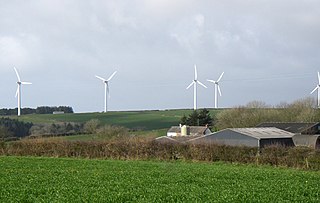
Renewable energy in the United Kingdom contributes to production for electricity, heat, and transport.
A Guarantee of Origin is an energy certificate defined in article 15 of the European Directive 2009/28/EC. A GO labels electricity from renewable sources to provide information to electricity customers on the source of their energy. Guarantees of origin are the only precisely defined instruments evidencing the origin of electricity generated from renewable energy sources.
Mandatory renewable energy targets are part of government legislated schemes which require electricity merchandisers to source-specific amounts of aggregate electricity sales from renewable energy sources according to a fixed time frame. The objective of these schemes is to promote renewable energy and decrease dependency on fossil fuels. If this results in an additional expenditure of electricity, the additional cost is distributed across most customers by increases in other tariffs. The cost of this measure is therefore not funded by the government budgets, except for costs of establishing and monitoring the scheme and any audit and enforcement actions. As the cost of renewable energy has become cheaper than other sources, meeting and exceeding a renewable energy target will also reduce the expenditure of electricity to consumers.
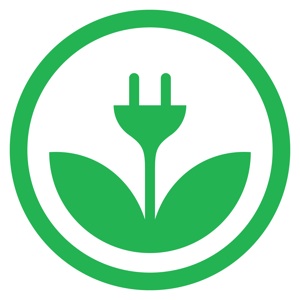
EKOenergy is an ecolabel for electricity. It is a not-for-profit initiative of the EKOenergy Network, a group of more than 40 environmental organizations from 30 countries. EKOenergy started in 2013 in Europe. Its secretariat is based in Helsinki. Nowadays, EKOenergy is the only international ecolabel for renewable electricity. It is available all over Europe and its material is available in more than 30 languages.

Green Energy (UK) Ltd, also known as GEUK®, is an independent sustainable energy company which sells 100% Ofgem-certified green and renewable electricity and gas, to homes, businesses and organisations in England, Wales and Scotland. GEUK is the only energy supplier in the UK to offer 100% green gas. Based in Ware, Hertfordshire, GEUK was established in 2001 by chief executive officer Douglas Stewart.
A renewable portfolio standard (RPS) is a regulation that requires the increased production of energy from renewable energy sources, such as wind, solar, biomass, and geothermal. Other common names for the same concept include Renewable Electricity Standard (RES) at the United States federal level and Renewables Obligation in the UK.
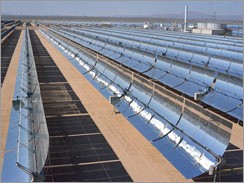
A consumer green energy program is a program that enables households to buy energy from renewable sources. By allowing consumers to purchase renewable energy, it simultaneously diverts the utilization of fossil fuels and promotes the use of renewable energy sources such as solar and wind.











